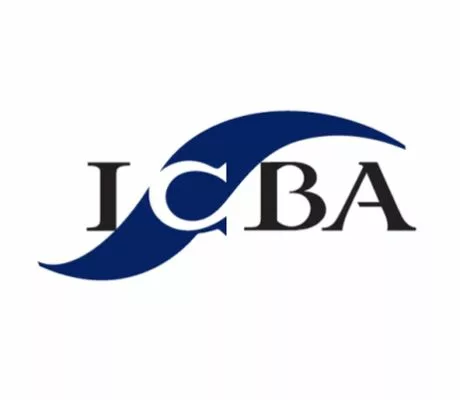In recent months, there has been a noticeable trend in the banking industry: credit unions are rapidly acquiring community banks. A flurry of deals in late August saw mergers and acquisitions announced in various states across the US, including North Carolina, Pennsylvania, Michigan, and Alabama. This surge in acquisitions by credit unions has raised eyebrows and sparked curiosity among industry experts. With credit unions traditionally known for their focus on serving specific communities, this unexpected move into acquiring banks has left many wondering about the motivations and potential implications of this trend.
Table of Contents
Credit Unions Snap Up Community Banks
A flurry of deals in late August saw mergers and acquisitions announced in North Carolina, Pennsylvania, Michigan, and Alabama. Credit unions have been on a buying spree, snapping up community banks across the country. This trend has raised eyebrows and sparked concern among industry experts.
The acquisition of community banks by credit unions raises questions about the future of these institutions. Community banks are known for their close ties to their local communities and their ability to provide personalized service to their customers. With credit unions taking over, there is a fear that these community banks will lose their identity and become more like their larger, corporate counterparts.
However, credit unions argue that these acquisitions are necessary for their survival. They claim that the current regulatory environment and changing consumer preferences have made it increasingly difficult for credit unions to compete with larger banks. By acquiring community banks, credit unions hope to gain the economies of scale and resources needed to remain competitive in today’s market.
While credit unions may view these acquisitions as a necessary step, critics argue that they raise serious concerns about the tax exemption enjoyed by credit unions. The Independent Community Bankers of America (ICBA) has called on Congress to investigate the tax exemption and determine whether it is still justified in light of these acquisitions. The ICBA argues that credit unions are no longer the small, member-focused institutions they once were, and therefore should not receive the same tax benefits.
The ICBA also raises concerns about the impact of these acquisitions on competition in the banking industry. With credit unions acquiring community banks, there is a fear that smaller banks will be unable to compete and may be forced to sell or merge with larger institutions. This consolidation could further reduce competition and limit consumer choice in the banking sector.
Overall, the flurry of credit union acquisitions of community banks has sparked a heated debate about the future of these institutions and the tax benefits they receive. As the trend continues, it will be interesting to see how regulators and lawmakers respond and whether any changes are made to the current regulatory framework.

This image is property of www.bankingexchange.com.
10-year Treasury Yield Major Concern for Regional Banks
The ten-year treasury yield has reached 4.8%, the highest level in 15 years. This increase has raised major concerns for regional banks, which rely heavily on the spread between short-term and long-term interest rates in their lending activities.
When long-term interest rates rise, the profitability of regional banks can be negatively impacted. This is because regional banks often fund their lending activities by borrowing at short-term rates and then lending at longer-term rates. When the yield curve steepens, as it has with the recent increase in the ten-year treasury yield, the spread between short-term and long-term rates narrows. This reduces the profitability of the bank’s lending activities.
Regional banks are also concerned about the potential impact of rising interest rates on their loan portfolios. As rates rise, borrowers may be less willing or able to take on new loans. This could lead to a slowdown in loan growth and impact the bank’s ability to generate earnings.
To mitigate the impact of rising interest rates, regional banks may need to reassess their lending strategies and focus on more interest-rate sensitive products. For example, they may need to increase their exposure to adjustable-rate loans or other types of loans that can better withstand rising rates.
In addition to the impact on lending activities, rising interest rates can also impact a bank’s investment portfolio. Regional banks often hold a significant portion of their assets in fixed-income securities, such as government bonds. As interest rates rise, the value of these bonds can decline, leading to potential losses for the bank.
Overall, the recent increase in the ten-year treasury yield has raised major concerns for regional banks. These banks will need to carefully monitor the interest rate environment and adjust their strategies to mitigate the potential impact on their profitability and loan portfolios.

This image is property of www.bankingexchange.com.
ICBA: Congress Must Investigate Credit Union Tax Exemption
The Independent Community Bankers of America (ICBA) is calling on Congress to investigate the tax exemption enjoyed by credit unions. This comes in response to the recent acquisition of community banks by credit unions, which has raised concerns about the future of these institutions and the competitive landscape of the banking industry.
The ICBA argues that credit unions are no longer the small, member-focused institutions they once were and therefore should not receive the same tax benefits. They claim that credit unions have become increasingly similar to their larger, corporate counterparts and are engaging in activities that go beyond their original purpose.
By acquiring community banks, credit unions are expanding their reach and becoming more like traditional banks. This raises questions about the justification for their tax exemption, as they are now competing directly with tax-paying institutions without paying taxes themselves.
The ICBA also raises concerns about the impact of credit union acquisitions on competition in the banking industry. They argue that these acquisitions could limit consumer choice and reduce competition, as smaller banks may be unable to compete with credit unions. This could lead to further consolidation in the banking sector and a decrease in the number of community banks.
Overall, the ICBA’s call for an investigation into the credit union tax exemption highlights the concerns raised by the recent wave of credit union acquisitions. It remains to be seen how Congress will respond to these concerns and whether any changes will be made to the current regulatory framework.

This image is property of www.bankingexchange.com.
PNC Buys Former Signature Bank Private Equity Loan Book
PNC, one of the largest banks in the United States, has acquired the private equity loan book of former Signature Bank for $16.6 billion. This acquisition comes nearly seven months after Signature Bank’s collapse, which sent shockwaves through the banking industry.
The acquisition of Signature Bank’s loan book will significantly expand PNC’s presence in the private equity lending market. Private equity loans are high-risk, high-reward loans that are typically made to finance leveraged buyouts and other investment activities. By acquiring Signature Bank’s loan book, PNC is positioning itself for growth in this lucrative market segment.
However, this acquisition is not without its risks. Private equity loans are inherently risky, as they are made to finance leveraged buyouts and other high-risk investments. If these investments do not perform well, PNC could be left holding a portfolio of nonperforming loans.
To mitigate this risk, PNC will need to carefully assess the quality of the loans it has acquired and monitor their performance closely. It may also need to adjust its lending criteria and underwriting standards to ensure that it is making sound lending decisions in the private equity market.
Overall, PNC’s acquisition of Signature Bank’s private equity loan book is a significant move that will expand its presence in the private equity lending market. However, it is not without its risks, and PNC will need to carefully manage these risks to ensure the long-term success of the acquisition.

